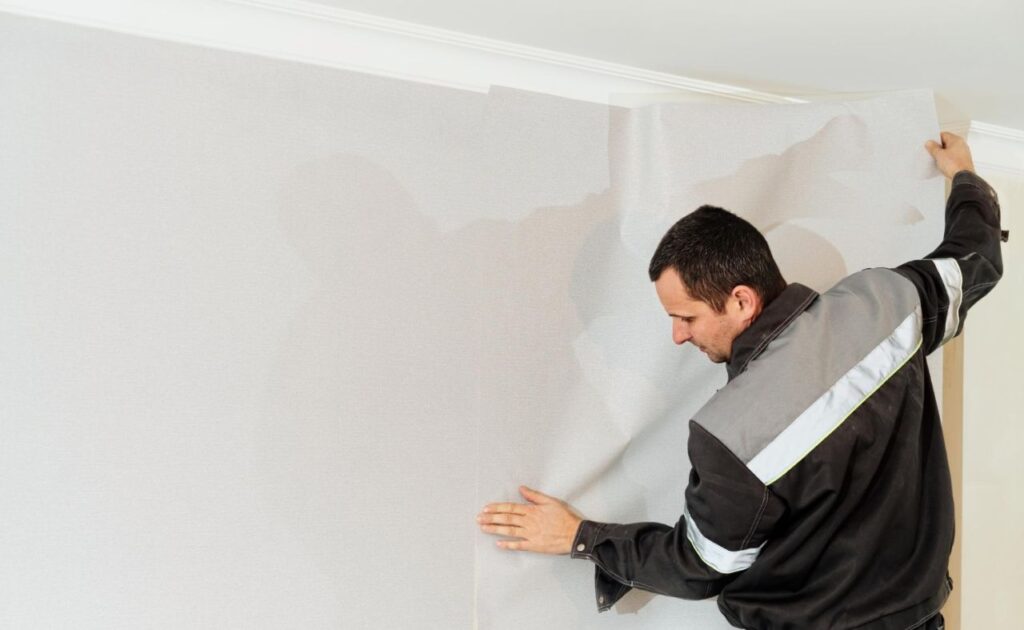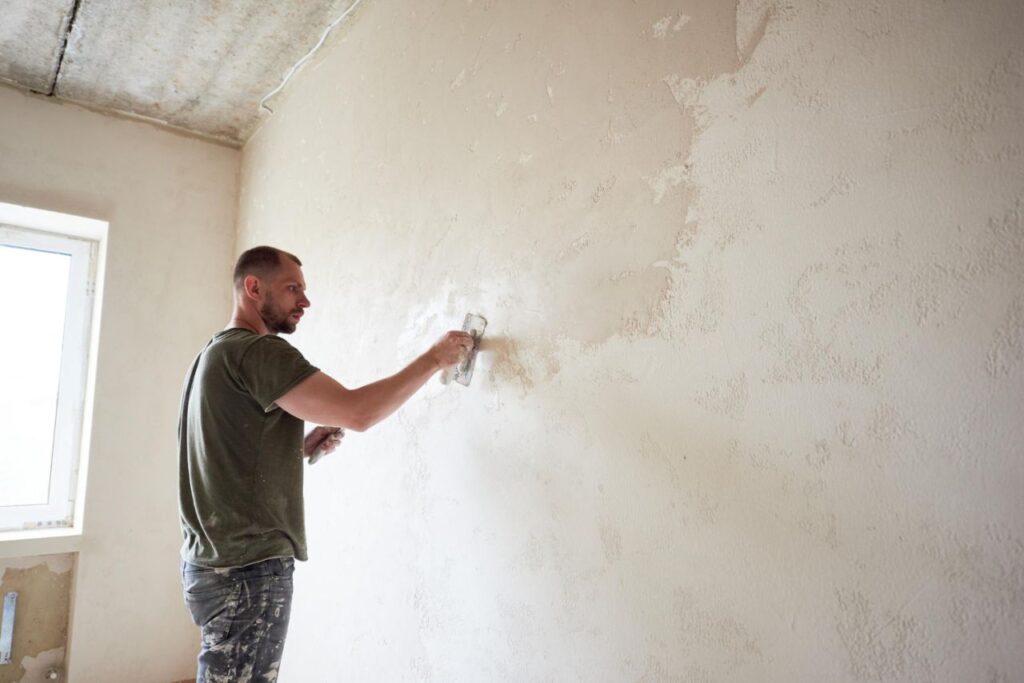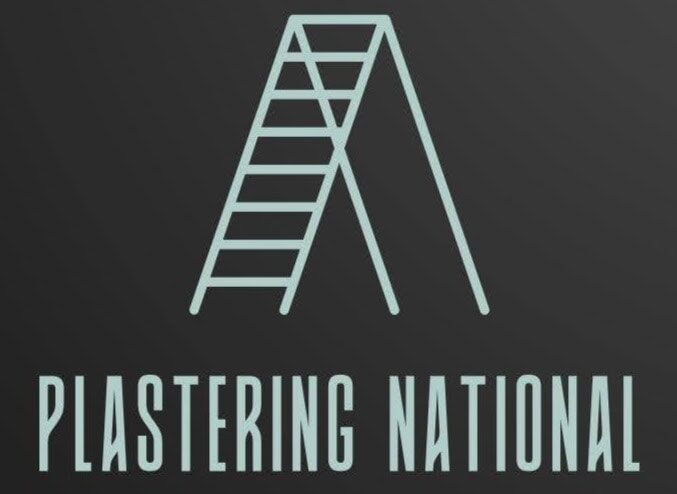The longevity and excellence of your plastering job are directly related to your choice of plasterer. If you want to choose a plasterer who is both qualified and experienced, you need to ask the appropriate questions before you hire them. Find out if the plasterer has the necessary licences and insurance before hiring them. Plasterers who hold valid licences have proven they have the education, experience, and training to carry out your project in a safe and efficient manner. Also, in the event that something goes wrong with the plastering job, having an insured plasterer on the job will safeguard you.
You should also enquire about the plasterer’s credentials and level of experience. Choose a plasterer with expertise in the specific kind of plastering you require. Find out if they have worked on similar projects before and if they can provide references. You can learn more about their skills and job quality from this. To make sure they are up to snuff, you should also enquire about the methods and materials they intend to employ on your job.
Before you choose a plasterer, make sure you and they talk about the project’s budget and schedule. Enquire about a comprehensive estimate that takes into account everything from materials and labour to any hidden fees. Make sure the project schedule fits in with your availability by discussing the timeline. To assist you have a good plastering experience, a professional plasterer can give you an exact estimate and timeframe for your project.
Questions to Ask Regarding Materials:
Which Plaster Is Best For Undercoats Made Of Sand And Cement?
Plasterers will likely tell you it’s relative to the background material’s suction level if you ask them this question.
Safety-Related Questions to Ask
When Placing: What Are The Most Important Safety Measures To Take?
Plastering is very physically demanding work, and any slip-up in following safety procedures could result in catastrophic injury; therefore, safety is of the utmost importance. Safety rules must be followed for the benefit of yourself, your coworkers, and the interviewees. They can also gauge your potential risk of liability by asking this question.
Questions That Should Be Asked Regarding Experience:
Tell Me About Your Past Work With Various Plastering Materials And Methods.
This question aims to gauge your level of knowledge and skill in relation to the different plastering materials and procedures. Depending on the project’s needs, a plasterer is required to use various materials and processes. Therefore, they must be flexible and adaptable. The interviewer can use this data to get a feel for your practical abilities, flexibility, and room for advancement on the job.
Tell Me About An Occasion When You Had To Meet Strict Deadlines. How Were You Aware That Your Work Was Of High Quality?
On a construction site, every second counts. When a project goes on too long, it might cause financial penalties and dissatisfied clients. So, it’s important to demonstrate to hiring managers that you can multitask well without compromising quality. Plasterers with strong time management, flexibility, and result-oriented skills are being sought after.
Do You Have Any Experience With Plastering? If So, What Kind?
It would help if you always started by inquiring about the plasterer’s experience level. Without a doubt, every successful enterprise has to start somewhere. The problem with hiring an inexperienced person is that you will become their practice project, which you do not want.
Are Customer Reviews Of Your Plastering Services Available For Perusal?
Reading evaluations written by customers who have used a company’s plastering services in the past is always a smart move.
Are You Able To Provide Client References?
Checking the track record of a tradesperson or company might help you determine if they are suitable for your assignment. Investigating their track record of work is a good place to start when looking into this. Visit their website, hipages profile, or Google or Yelp reviews to do this. Another potent method is word of mouth, which is particularly effective when it comes from people you trust, such as family and friends.
When Plastering, How Did You Find Working With Various Surfaces, Such As Drywall, Concrete, And Brick?
The surface’s composition and condition will influence your plastering techniques and materials. If you want your plastering to look good and last a long time, you need to know how to prepare and treat various surfaces correctly. By asking this question, hiring managers are trying to gauge your practical expertise and capacity to adapt to the field.
A Question Regarding the Procedure to Ask:
What Is The Typical Procedure From Beginning To End To Plaster A New Wall?
We are trying to get a feel for your level of technical expertise and work experience through this enquiry. Despite appearances, there is a precise procedure to follow while plastering to achieve a professional finish. Gaining a comprehensive understanding of the process from beginning to end showcases your task management skills, guaranteeing that all essential steps are carried out in the optimal sequence for optimal outcomes.
What Techniques Do You Use When Plastering To Ensure The Finish Is Smooth?
Among other skills, accuracy and precision are essential in the plastering trade. The goal of the question is to test how well you know how to use specific methods and equipment to get a professional result. It reveals how meticulous you are, how well you follow procedures, and how much you care about producing high-quality work.
After Painting A Wall, How Do You Plaster It?
Just give this to your plasterer. They should know better than to recommend plastering over anything other than a freshly painted, in excellent condition wall. Their offer to plaster over a previously painted wall should include a sample section so you can determine if it will work.
When Will This Task Be Completed?
Discovering the estimated time required to complete the task is also important. The amount of disturbance to your home is something you should know, after all.
Keeping Your Work Area Clean And Organised While Plastering Is Essential.
The interviewer tries to understand how seriously you take maintaining a neat workplace. This is particularly crucial while plastering since a disorganised work area increases the risk of accidents, decreases productivity, and compromises the quality of the final product. Also, being neat shows that you value the client’s environment and are professional. It demonstrates that you have the organisational skills to keep track of all the resources and tools you need to do your job well.
Things to Enquire About When Discussing Prices:
What Is The Estimated Price For The Plastering Job?
You will naturally be curious about the total cost of the project. In most cases, a portion of the total cost will be due before work begins. On the other hand, 25% is the maximum amount you should be charged. In addition, you need to know if the plastering quote is guaranteed.
How Long Does The Plastering Work Last?
In addition to the previously mentioned concerns, you should verify that the plastering service you intend to use offers a guarantee.
Thanks to this, you may rest easy knowing that you won’t have to pay out of pocket to fix any problems that may arise in the near future.
What Does The Quote Contain?
Last but not least, before you approve the quote, ensure you know exactly what it will cover. This will help you avoid nasty surprises.
Are You Licensed?
Even if you have not realised it, practically every trade needs a licence. This is supplementary to their credentials and training, and it’s meant to give homeowners an extra degree of safety. Also, most trades require a licence before working on your property, though the specifics vary by jurisdiction.
Will There Be Any Hidden Fees?
Although an initial quote is acceptable, the specifics may vary based on the nature of the property. If, for instance, scaffolding is required to reach high ceilings, an extra fee can apply. Hire a skip and pay for the plasterer to remove the trash. Honesty regarding these expenditures from the beginning is essential for building trust.
How Will Payments Be Made?
Both you and the expert plasterer should talk about how to pay, including whether it will be a lump sum or spread out over time. Beginning with well-defined goals is essential.
FAQs About Plastering
Will You Provide A Contract Outlining The Scope Of Work?
Ensure a written contract detailing the project’s scope, materials to be used, timeline, payment terms, and any warranties or guarantees offered.
Can You Provide Examples Of Your Past Work?
Request photos or references of previous plastering projects to assess the quality of craftsmanship and determine if the plasterer’s style matches your aesthetic preferences.
What Preparation Is Needed Before Plastering Can Begin?
Discuss any necessary preparations to ensure the plastering process proceeds smoothly, such as surface cleaning, repairs, or removal of existing materials.
How Do You Handle Unexpected Challenges Or Changes During The Project?
Inquire about the contractor’s flexibility and problem-solving approach in addressing unforeseen issues, such as structural concerns or design modifications.
What Post-Installation Care Or Maintenance Is Required?
Ask about recommended maintenance practices and how to address any issues that may arise after the plastering work is complete, ensuring the longevity and integrity of the finished surfaces.
Situation-Related Questions to Ask
When Plastering: What Happens If Any Unanticipated Problems Occur?
The purpose of this question is to evaluate your capacity to think critically and creatively in the face of uncertainty. Preparing for the unexpected is key in the construction industry because problems like this are common. Prospective employers value candidates who can demonstrate the ability to think quickly on their feet and devise effective solutions in the face of unexpected challenges, whether they arise from building materials or hidden surprises within walls.
How Did You Handle A Client Who Was Unhappy With Your Plastering Job?
Ensuring client happiness is of utmost importance in the construction and trade industries. Your job as a plasterer requires you to meet and even surpass all expectations. This question will gauge your capacity to absorb constructive criticism and learn from errors. Furthermore, it gives recruiters a glimpse into your analytical thinking, problem-solving abilities, and dedication to producing high-quality work.
How Will You Handle The Situation Of Salt Contamination?
Careful removal of salt from the background surface is required of the plasterer. A dust-free, spotless background is required. A lot of salt intrusion might lead to moisture issues. The plasterer is responsible for determining if the salts are a byproduct of the drying process or if there is a more systemic issue with moisture in your house.
Do You Have Experience Dealing With Difficult Team Members? How Were You Able To Deal With The Situation?
Collaboration with other construction industry experts is a common aspect of a plasterer’s job, and it’s not always a bed of roses. So, it’s critical that you can handle disagreements with coworkers and keep the peace at work. Your ability to work well with others, solve problems, and remain professional under pressure are all intended to be elicited by this enquiry.
How Do You Deal With Changes Or Corrections When Working With Dried Plaster?
This enquiry is trying to gauge your ability to solve problems in a real-world, work-related setting. The plastering industry is notorious for its unpredictable nature, wherein human error and environmental factors can compromise the final output. Your capacity to manage scenarios ranging from little edits to extensive reworks showcases your versatility, technical expertise, and dedication to producing top-notch work.
How Did You Handle A Situation When You Were Required To Plaster To Exacting Specifications?
By asking you this question, we want to know how serious you are about accuracy and quality. Being meticulous and accurate is essential in the skilled occupation of plastering. When interviewing candidates, hiring managers look for evidence that you can handle difficult jobs to a high-quality standard and take pride in your work.
Conclusion
In summary, a plasterer’s role is crucial in the construction industry, and demonstrating knowledge of safety standards, problem-solving talents, and dedication to quality artistry are essential for a successful interview. Asking questions about materials, safety measures, experience, and time management can help determine a plasterer’s suitability for your project.
Maintaining a clean and organized work area is crucial for plastering, as disorganized work increases the risk of accidents, decreases productivity, and compromises the final product. It also shows professionalism and organization skills. When discussing prices, it is important to inquire about the estimated cost, the duration of the plastering work, the quote’s contents, the plasterer’s license, any hidden fees, and payment methods.
When assessing potential clients, it is essential to consider their ability to think critically and creatively in the face of uncertainty. This is crucial in the construction industry, as problems like these are common. The plasterer must also handle clients who are unhappy with their job, demonstrating their analytical thinking, problem-solving abilities, and dedication to producing high-quality work.
When dealing with salt contamination, the plasterer must ensure a dust-free, spotless background to prevent moisture issues. They must also handle disagreements with coworkers and maintain a peaceful work environment. The plasterer’s ability to handle changes or corrections in a real-world setting showcases their versatility, technical expertise, and dedication to producing top-notch work.
Lastly, being meticulous and accurate when constructing precise specifications is essential in the skilled occupation of plastering. Hiring managers look for evidence that the plasterer can handle difficult jobs to a high-quality standard and take pride in their work.
Content Summary
- Hiring a skilled plasterer is crucial for achieving visually appealing walls and ceilings in construction projects.
- Safety standards, problem-solving skills, and dedication to quality are vital aspects for a plasterer’s interview.
- Consider the suction level of background materials when determining the best plaster for undercoats made of sand and cement.
- Prioritize safety measures while plastering to prevent catastrophic injuries and assess potential liability risks.
- Evaluate past experience with various plastering materials and methods to gauge flexibility and practical abilities.
- Ability to meet strict deadlines while maintaining high-quality work is essential for plastering jobs.
- Experience level inquiries help gauge proficiency and avoid becoming a practice project for inexperienced plasterers.
- Reviewing customer testimonials and client references provides insights into a plasterer’s reputation and quality of work.
- Understanding how to work with different surfaces like drywall, concrete, and brick showcases practical expertise.
- Familiarity with the plastering procedure from start to finish demonstrates technical expertise and task management skills.
- Employing techniques for achieving smooth finishes highlights precision and attention to detail in plastering.
- Maintaining a clean and organized work area reflects professionalism and minimizes risks during plastering.
- Inquire about estimated costs, duration, and what’s included in the plastering quote to avoid surprises.
- Confirming licensing and discussing payment methods ensure legal compliance and financial clarity.
- Transparency regarding potential hidden fees fosters trust and avoids misunderstandings during the project.
- Handling unexpected problems and addressing client dissatisfaction require critical thinking and problem-solving skills.
- Dealing with salt contamination issues demands thorough surface preparation and moisture management.
- Experience in managing difficult team members showcases interpersonal skills and conflict resolution abilities.
- Handling changes or corrections in dried plaster demonstrates adaptability and problem-solving in real-time scenarios.
- Adhering to exacting specifications reflects commitment to accuracy and high-quality workmanship.
- Prioritise safety procedures to prevent accidents and ensure the wellbeing of all workers on site.
- Flexibility and adaptability in using different plastering materials are essential for diverse project needs.
- Efficient time management is crucial to meet project deadlines and avoid financial penalties.
- Prior experience with various surfaces helps ensure proper preparation and treatment for durable plastering.
- Understanding the plastering process from start to finish indicates comprehensive technical knowledge.
- Utilising specific techniques for smooth finishes showcases craftsmanship and attention to detail.
- Maintaining a clean work area demonstrates professionalism and minimises safety hazards.
- Clear communication about pricing and payment terms ensures transparency and avoids disputes.
- Verifying licensing and insurance coverage provides reassurance and legal compliance.
- Discussing potential additional fees upfront fosters trust and prevents unexpected expenses.
- Handling unexpected challenges demonstrates problem-solving skills and adaptability.
- Addressing client concerns effectively reflects professionalism and commitment to customer satisfaction.
- Managing salt contamination issues requires expertise in surface preparation and moisture control.
- Collaborating with difficult team members showcases interpersonal skills and conflict resolution abilities.
- Handling changes or corrections in plastering demonstrates flexibility and attention to detail.
- Adhering to exact specifications reflects dedication to quality and precision in workmanship.
- Prioritizing safety measures ensures a secure work environment for all involved.
- Adapting techniques for different surfaces showcases versatility and practical knowledge.
- Meeting project deadlines demonstrates efficient time management and organisational skills.
- Understanding the plastering process indicates technical expertise and experience in the field.
- Employing precise techniques for smooth finishes highlights attention to detail and craftsmanship.
- Maintaining cleanliness on the job site reflects professionalism and care for the environment.
- Clear communication about pricing and payment terms fosters trust and avoids misunderstandings.
- Verifying licensing and insurance coverage ensures compliance with regulations and protection for both parties.
- Discussing potential additional fees upfront promotes transparency and prevents surprises.
- Handling unforeseen challenges showcases problem-solving abilities and adaptability.
- Addressing client concerns effectively demonstrates professionalism and commitment to quality.
- Managing salt contamination issues requires expertise in surface preparation and moisture control techniques.
- Collaborating with difficult team members highlights interpersonal skills and conflict resolution capabilities.
- Adhering to exact specifications reflects dedication to delivering high-quality workmanship.



